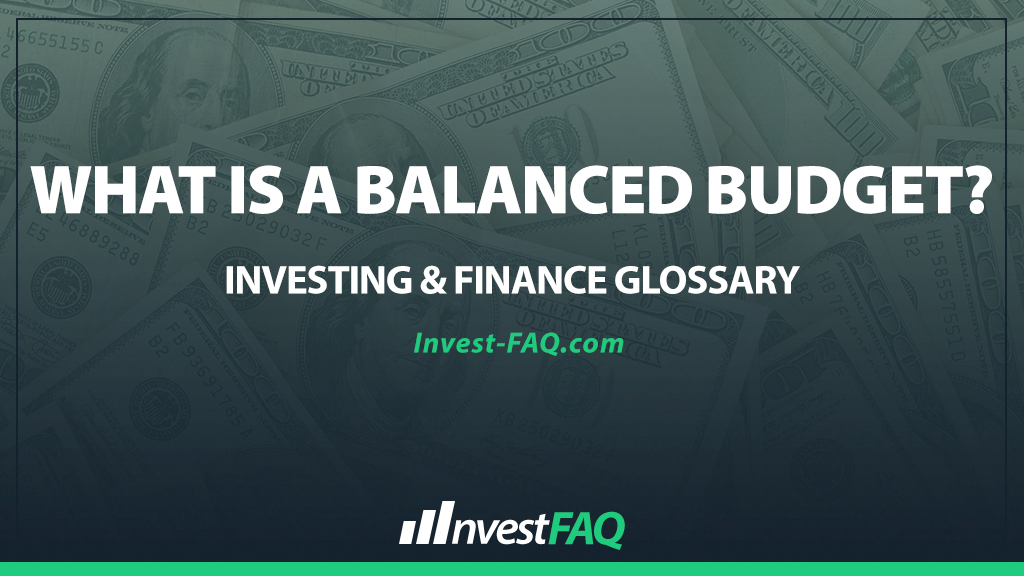
Balanced Budget
Contents
A balanced budget occurs when the revenues and expenditures of an entity, such as a government, organization, or individual, are equal within a specific accounting period. This financial strategy ensures that the total amount of money coming in matches or exceeds the amount being spent, preventing deficit spending.
In the business context, maintaining a balanced budget is crucial for sustainable operations and financial health.
It allows companies to manage their resources effectively, avoiding the pitfalls of debt accumulation and ensuring that spending aligns with strategic objectives.
For businesses, this discipline supports cash flow management, investment in growth opportunities, and the building of reserve funds for future uncertainties.
Example of a Balanced Budget
Imagine a small bookstore, “Page Turners,” planning its annual budget. The store projects annual revenues from book sales, café operations, and event hosting to total $500,000. Concurrently, it anticipates yearly expenses, including rent, salaries, utilities, and inventory purchases, to also amount to $500,000.
Revenues:
Book Sales: $300,000
Café Operations: $150,000
Event Hosting: $50,000
Expenses:
Rent: $120,000
Salaries: $200,000
Utilities: $30,000
Inventory: $150,000
In this scenario, “Page Turners” has effectively created a balanced budget by ensuring its projected revenues equal its anticipated expenses, both totaling $500,000.
This budgeting approach allows the bookstore to operate within its financial means, avoiding the need for borrowing and reducing financial stress.
The process of matching projected revenues with expected expenses requires careful planning and analysis, taking into account past performance, market conditions, and strategic goals.
By doing so, “Page Turners” positions itself to achieve financial stability, meet its operational needs, and invest in areas that could enhance future profitability.
Significance for Investing & Finance
The concept of a balanced budget holds significant importance in accounting for several reasons:
Financial Discipline: It fosters a culture of financial discipline within an organization, emphasizing the importance of living within one’s means and planning for the future.
Risk Mitigation: A balanced budget reduces the risk of accumulating debt and the associated interest costs, contributing to long-term financial sustainability.
Strategic Focus: It enables businesses to allocate resources more effectively, focusing on strategic priorities and investments that offer the best returns.
In summary, a balanced budget is a fundamental financial management tool that plays a critical role in ensuring the operational and financial health of a business. By equating revenues with expenditures, businesses can maintain stability, support strategic growth, and build a solid foundation for future success.
FAQ
What are the primary benefits of maintaining a balanced budget for a small business?
A balanced budget helps a small business manage cash flow effectively, ensuring that spending aligns with revenue, which can prevent debt accumulation and support sustainable growth.
How can a company achieve a balanced budget if its initial projections show a deficit?
To achieve a balanced budget, a company facing a deficit may need to identify areas to cut costs or find ways to increase revenue, such as introducing new products, optimizing operations, or exploring new markets.
Is a balanced budget always the best financial strategy for a company?
While a balanced budget is beneficial for maintaining financial stability, there may be strategic reasons for a company to operate at a deficit, such as investing in significant growth opportunities that promise higher returns in the future.
How does a balanced budget impact a company’s ability to respond to unexpected financial challenges?
A balanced budget, particularly when it includes the allocation of funds to emergency reserves, enhances a company’s ability to respond to unexpected financial challenges by providing a buffer that can absorb unforeseen expenses or revenue shortfalls.
